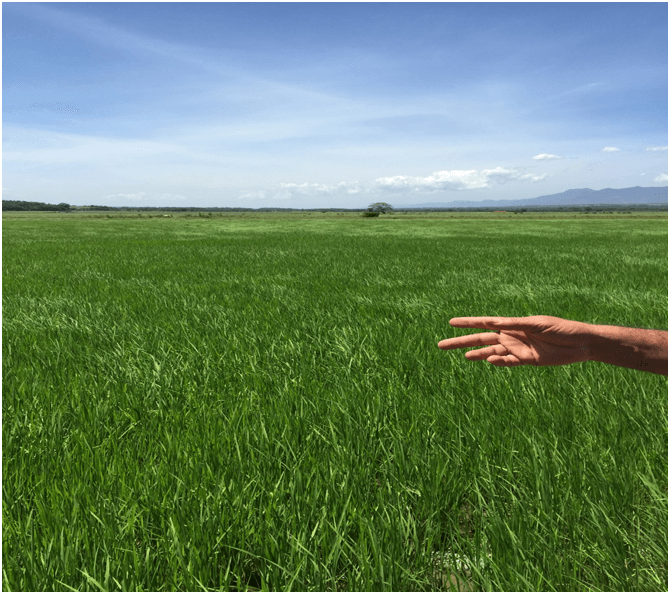
In March, farmers begin to prepare their fields for planting. First, fields are carefully leveled with precision, GPS or laser-guided grading equipment. Level fields allow rice farmers to conserve water. Fertilizer is then added, and shallow furrows are rolled into the field. By April, the fields are ready to be planted.
Flooding and Seeding
Water is run into the fields to a depth of only 5 inches. Consistent water depth has been shown to improve the rice plants’ ability to compete against weeds for nutrients and sunlight, reducing the need for herbicides. Rice seed is then soaked and loaded into planes.
Flying at 100 mph, planes plant the fields from the air. The heavy seeds sink into the furrows and begin to grow.
Maturation of Rice
The rice seedlings are now ready to begin their four to five-month journey to maturity. Early in the growing cycle, one to two applications of herbicides are applied to control weeds. If necessary, farmers may also treat the fields for the rice water weevil and other insects. Early application of just a few crop protection materials ensures pure rice at harvest.
The rice grows rapidly, ultimately reaching a height of 3 feet. During this time, farmers are careful to maintain a consistent water depth of the same 5 inches. By late summer, the grain begins to appear in long panicles on the top of the plant. By September, the grain heads are mature and ready to be harvested. On average, each acre will yield over 8,000 pounds of rice!
Harvest
Before rice harvest can begin, the fields must be drained. Once the fields are dry, state-of-the-art harvesters enter the fields to collect the perfectly ripe grain. Because quality is so important, these harvesters are designed to both gently and rapidly bring the grain in from the fields. Specialized tractors called bankout wagons come alongside, receiving the rice and delivering it to waiting trailers so the harvesters can continue without having to stop to unload.
Milling & Storage
Next, the rice is carefully dried to an ideal moisture level and stored until the customer places an order. At the mill, the hull is first removed, leaving brown rice. White rice is the result of gently removing the bran layers to leave just the inner, pearly grain.






